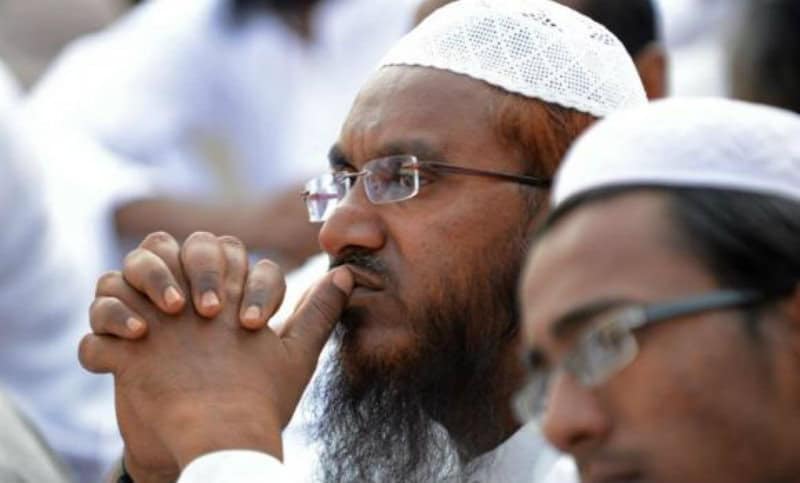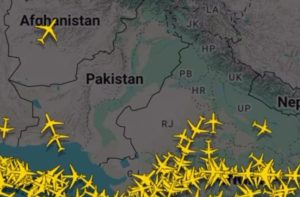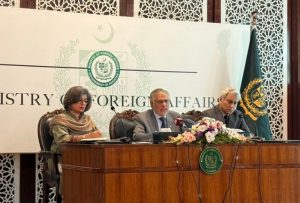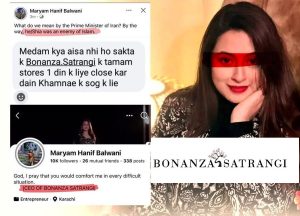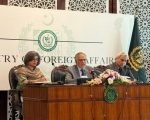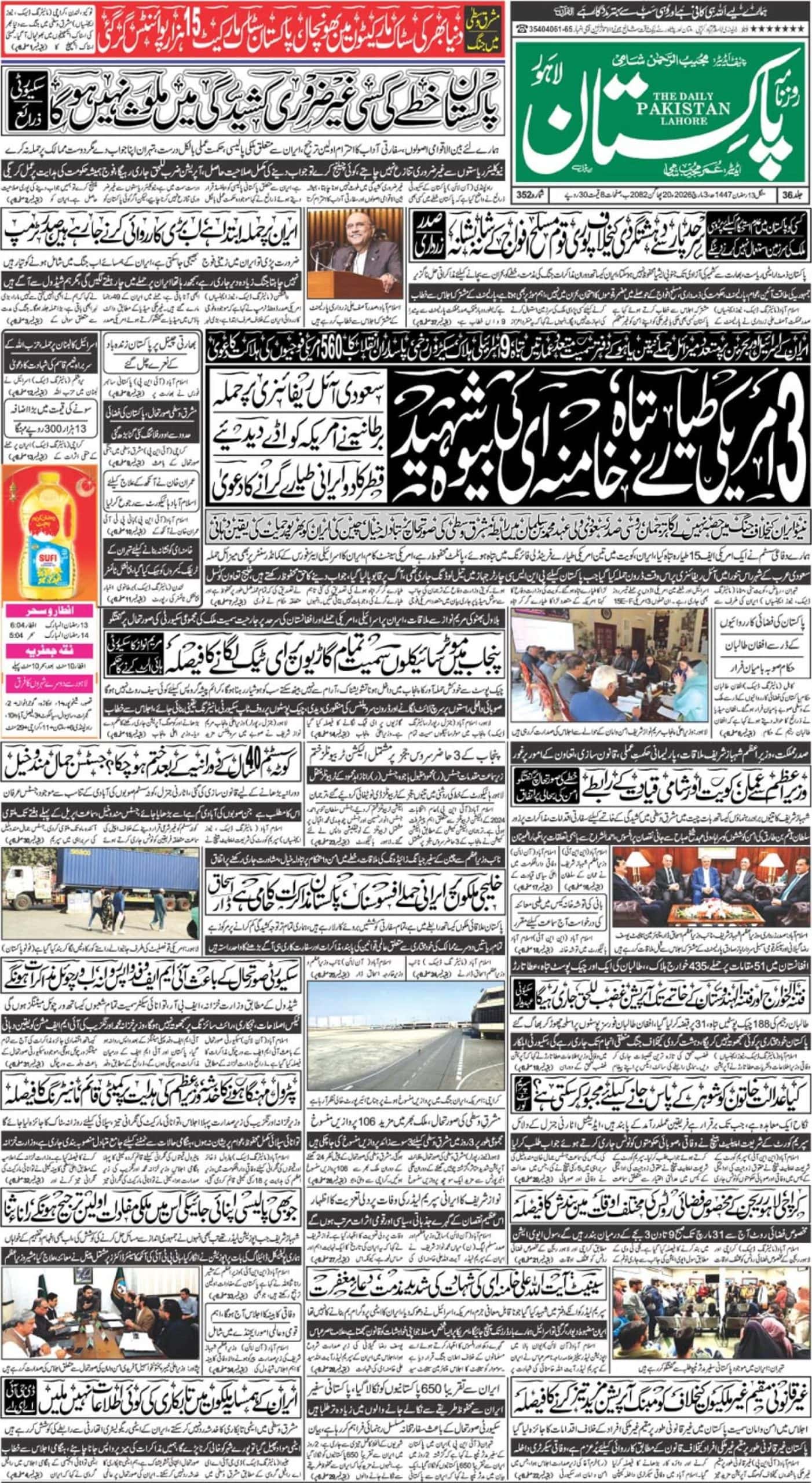ISLAMABAD (Staff Report) – Pakistan on Tuesday organised a one-day national conference on the plight of Muslims and other minorities in the neighbouring country.
The conference, titles “Plight of Minorities in India”, was organised by Islamabad Policy Research Institute, and was chaired by Institute of Strategic Studies chairman and former ambassador Khalid Mehmood.
The distinguished speakers including Dr Shaheen Akhtar, Dr Muhammad Mujeeb Afzal and former ambassador Fauzia Nasreen shed light upon the plight of minorities under BJP and India’s claim of being a secular state in spite of the atrocities being committed against minorities.
Read: Hindu mob kills Muslim man for ‘eating beef’ in India
The future of Pakistan-India relations in the wake of growing Hindu extremism in India was also an important theme of the conference.
The plight of minorities in India had been a great cause of concern even before the creation of Pakistan, said Khalid Mehmood. He held the minorities in India were being subjected to communal violence on a large scale; demolition of Babri Mosque in December 1992 and communal riots in Indian Gujarat in February 2002 being the prime examples of communal riots among others.
Read more: Aatish Taseer – another victim of Indian INTOLERANCE
He opined the rise of Modi would also mark the rise of Hindu extremism. Initially the Muslims were the primary target, later the tide of communal violence engulfed other minorities as well, he stated.
The movements like Ghar Wapsi were yet another label for persecution of minorities which promoted massive conversions to Hinduism under the cloak of better opportunities.
During his election campaign, Modi declared that he would adopt a muscular policy towards Pakistan which did not bode well to already stiff Pak-India relations. With Modi’s ascent to power, Hindu hardliners believe that they have full freedom to exercise their religious fanaticism. Religious fanaticism under Modi’s patronage had tarnished India’s secular image in the world, Mr Mehmood concluded.
Dr Shaheen Akhtar, Associate Professor at National Defence University Islamabad, while discussing “Indian Secularism: Myth or Reality”, stated that secularism despite being a part of Indian constitution had remained a myth.
Read more: MLA Sheikh Abdul Rashid painted black in New Delhi
Divorcing religion from politics, could ensure secularism, which was a far cry in Indian political stage, given recent wave of extremism, she said.
Dr Akhtar also highlighted how different leaders were using religion for their political agendas.
The ‘secular’ Indian state did not intervene or take any measure to prevent demolition of the Babari Mosque in 1992, which betrayed its false claims of secularism, she maintained.
Read more: Sonia, Rahul lead Congress march to protest Modi’s intolerant policies
Quaid-e-Azam University Assistant Professor Dr Muhammad Mujeeb Afzal highlighted the plight of Indian Muslims and other minorities under BJP. He was of the view that a state which claimed to be a pluralistic, and democratic, minorities should be free to exercise their fundamental rights.
On the contrary, minorities were being seen as a burden, he commented.
He added that Indian Muslims were the largest and unique minority. In spite of heavy rhetoric on secularism, Indians opted to play communal cards when it came to practice, he said.
Dr Afzal stated: “Jamiat-Ulmai Hind and Congress alliance had never broken since 1929 after the Jamiat avowed not to use Sharia Law and believe in one nation theory.
“Majority of hardliners in India believed that the minorities were sucking their resources and contributing nothing towards the country’s development.”
He further said the Indian Muslims were foreigners and disloyal people according to Hindutva. The hardliners maintained that Muslims should accept their subordinate status in India, he said.
The re-ignition of Gau-Raksha, (preserve the cow) was also alarming. Countering communalism with communalism, would only give rise to Muslim terrorism, Dr Afzal maintained.
Former ambassador Fauzia Nasreen, HoD Center for Policy Studies, COMSATS, while discussing Future of Pakistan-India Relations in the Wake of Hindu Extremism in India said that ideology had played a pivotal role in shaping the nature of ties between the two countries. Hindu nationalism had also prevailed under the mantel of Hindu secularism, she added.
Given the chequered history of Pak-India relations, the Hindu communalism would continue to mar the relationship, she opined. The 2002 attacks were devastating as they brought an end to all forms of dialogue.
The US administration had also alluded to growing Hindu communalism. All Indian attempts to isolate Pakistan had come to naught, the former ambassador stated.
“In the name of religion, atrocities are being committed in India. Waking up of anti-Pakistan sentiment meant that people to people contact would be affected by the hatred generated against Pakistan.”
She further said that crushing Kashmiris would only generate pro Pakistani sentiment among them. Also, hostility was being fuelled by the hardships faced by people living around LoC.

